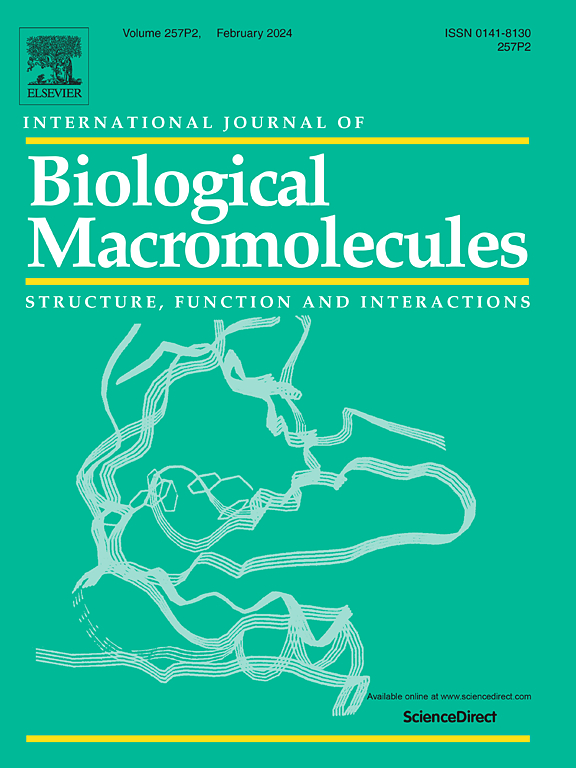抗冻多糖水凝胶的设计与应用及其生物技术进展
IF 8.5
1区 化学
Q1 BIOCHEMISTRY & MOLECULAR BIOLOGY
International Journal of Biological Macromolecules
Pub Date : 2025-04-18
DOI:10.1016/j.ijbiomac.2025.143317
引用次数: 0
摘要
多糖基水凝胶具有理想的特性,如柔韧性,生物相容性和生物降解性。然而,这些水凝胶在低温环境下往往会失去其固有的特性和功能,这极大地限制了它们在寒冷环境中的潜在应用。防冻水凝胶通过在低温下保持其性能,展示出显着的优势,为这一挑战提供了一个有希望的解决方案。本文首先通过VOS Viewer进行文献计量分析,以全面了解防冻水凝胶的发展趋势。随后总结了多糖基水凝胶的各种防冻机理,包括溶质离子改性、有机醇改性、离子凝胶、共晶凝胶以及通过分子链聚合的固有防冻性能。此外,综述了防冻水凝胶在食品保鲜、柔性可穿戴设备和能量储存方面的应用。最后,展望了防冻多糖基水凝胶的未来发展方向,重点是利用天然多糖资源制备集防冻性能、力学性能和稳定性于一体的水凝胶,从而促进相关产业的发展。本文章由计算机程序翻译,如有差异,请以英文原文为准。

Design and applications of antifreeze polysaccharide-based hydrogels for cryoprotection and biotechnological advancements: A review
Polysaccharide-based hydrogels possess desirable characteristics such as flexibility, biocompatibility, and biodegradability. Nevertheless, these hydrogels frequently lose their inherent traits and functionality under low-temperature circumstances, which significantly restricts their potential applications in cold environments. Antifreeze hydrogels provide a promising solution to this challenge by maintaining their properties at cold temperatures, showcasing remarkable advantages. This review commences with a bibliometric analysis via VOS Viewer to acquire a comprehensive comprehension of the development tendencies in antifreeze hydrogels. It subsequently summarizes diverse antifreeze mechanisms in polysaccharide-based hydrogels, encompassing solute ion modification, organic alcohol modification, ion gels, eutectic gels, and intrinsic antifreeze properties through molecular chain polymerization. Additionally, the review explores the applications of antifreeze hydrogels in food preservation, flexible wearable devices, and energy storage. Finally, the future directions for the development of antifreeze polysaccharide-based hydrogels are deliberated, with an emphasis on the utilization of natural polysaccharide resources to create hydrogels that integrate antifreeze performance, mechanical properties, and stability, thereby facilitating advancements in related industries.
求助全文
通过发布文献求助,成功后即可免费获取论文全文。
去求助
来源期刊
CiteScore
13.70
自引率
9.80%
发文量
2728
审稿时长
64 days
期刊介绍:
The International Journal of Biological Macromolecules is a well-established international journal dedicated to research on the chemical and biological aspects of natural macromolecules. Focusing on proteins, macromolecular carbohydrates, glycoproteins, proteoglycans, lignins, biological poly-acids, and nucleic acids, the journal presents the latest findings in molecular structure, properties, biological activities, interactions, modifications, and functional properties. Papers must offer new and novel insights, encompassing related model systems, structural conformational studies, theoretical developments, and analytical techniques. Each paper is required to primarily focus on at least one named biological macromolecule, reflected in the title, abstract, and text.

 求助内容:
求助内容: 应助结果提醒方式:
应助结果提醒方式:


